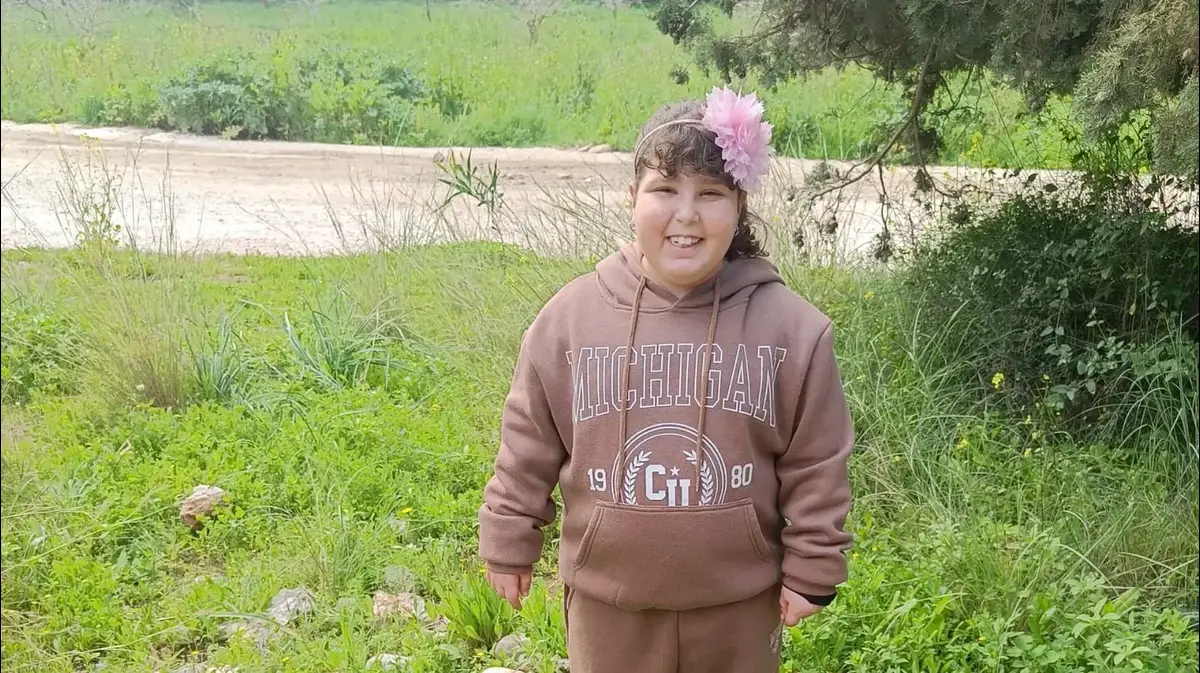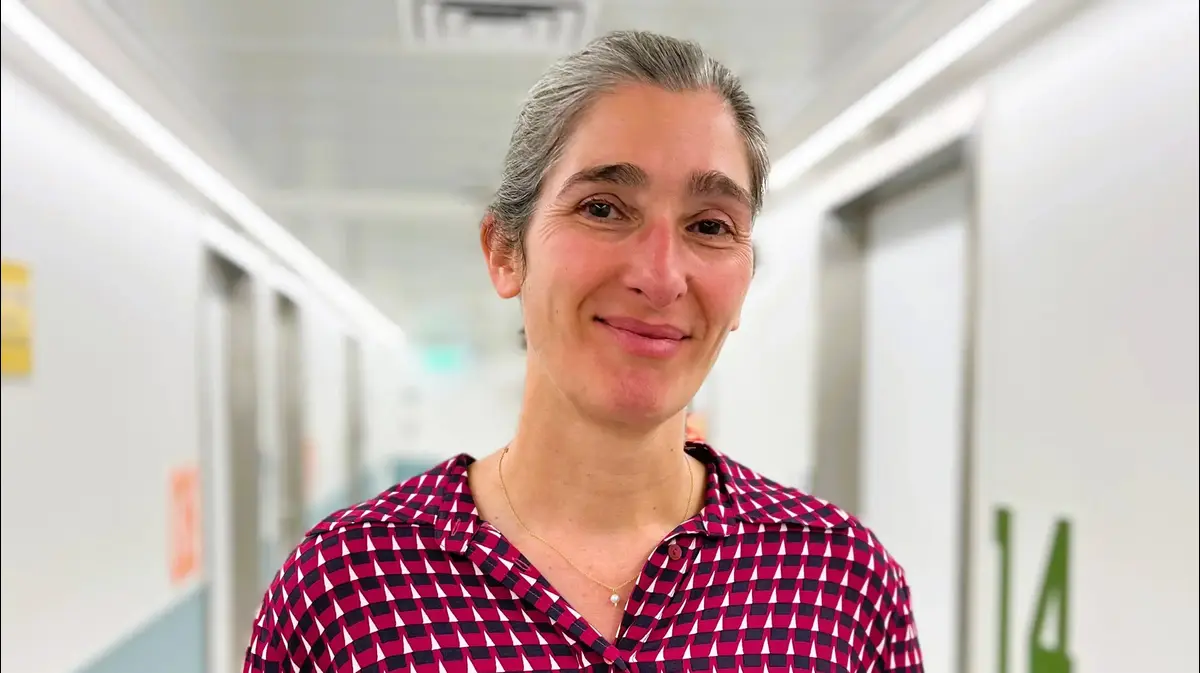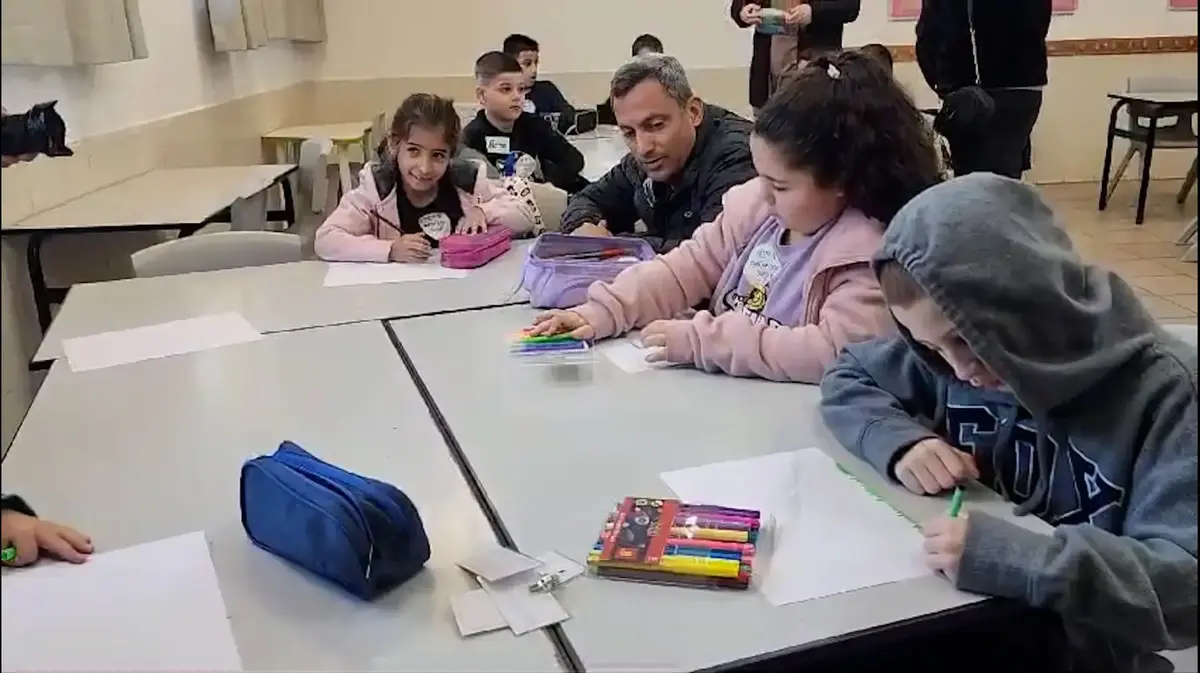health
parenthood
Child health
Corona Prisoners: What will happen to children who do not return to school?
We have grown up here a whole generation of boys and girls whose natural developmental process has been halted, delayed, deficient, for a very long time, a period whose consequences will be seen many years after it is all over.
Tags
parenthood
Corona
Children
Pupils
learning from distance
Walla!
health
Monday, February 22, 2021, 7 p.m.
Share on Facebook
Share on WhatsApp
Share in general
Share in general
Share on Twitter
Share on Email
0 comments
Senior British scientist: The variant could harm the vaccines ...
World Health Organization delegation: "It is unlikely that the corona ...
Ministry of Health: Hundreds of vaccines for Corona are thrown every day ...
Netanyahu at the beginning of the cabinet meeting discussing the extension of the closure: ...
The world's largest vaccination campaign: India has started vaccinating ...
Netanyahu: 90% of people aged 50 and over must be vaccinated within ...
Parents and children protest in protest of the partial opening of ...
Mom found an ingenious method for a flat stomach
Edelstein: Workers in places with an audience will have to get vaccinated or ...
Biden announces that the US has bought 200 million doses of vaccine ...
In the video: In protest of their non-return to school, seventh-tenth graders are studying in the mall (Photo: Roni Knafo)
"Many years ago, as part of my undergraduate degree, a study was enacted in my memory that examined which prisoners were the most emotionally difficult in prison. What the researchers found was amazing to me - those most difficult are not prisoners sentenced to life imprisonment, but rather unpunished."
So says Lizzie Porat, a parent counselor and director of municipal authorities at the Adler Institute, who like many other adults is very concerned about the emotional state of middle school students who have not yet returned to school, and who knows when they will return.
While elementary and high school students have returned to class in the past two weeks, seventh- through tenth-grade students, some of whom have not been to school for months, are still in homes.
According to Porat, these children, who have not been given an orderly framework for a whole year, are no less than "Corona prisoners."
More on Walla!
NEWS
It is very difficult to identify that adolescents are in distress during the corona period.
And that's a problem
To the full article
"They have been locked in their homes for many months, with little hope or clear knowledge as to when it will all be over. Uncertainty is a depressing thing for all human beings, but for those teenagers in particular, and we adults, seemingly knowledgeable, have no answers to give them. At this point, "she says," we are talking about an entire generation of boys and girls whose natural developmental process has been halted, delayed, deficient for a very long time. A period whose consequences will be seen in my opinion many years after it all ends. And who knows when it really is. Will it end? "
"Our children are losing themselves"
Roni is a mother of 15 from the center of the country who has been at home for a year.
In September her daughter returned to school for a moment, partially and in capsules, then closed them again - and since then she and her friends have been at home.
"The biggest rift in my eyes is that youth defines themselves through the other, it's a stage of self-determination that can't be measured through the zoom camera," she says.
This school is much more than study material.
School in Rishon Lezion (Photo: Reuven Castro)
"These are teenagers who are already hard to disconnect from the screen, so at least during those 8 hours at school we knew they were interacting - talking, laughing, producing things that make you human, all these little things that happen at 15 - boys, girls, definition of "Who am I in front of the other. It's not happened for a year, it just does not happen. It sounds like Eilon is small, but at 15 it is a world in its entirety, that's all they are, and when you take it from them - they have nothing, they seem to lose themselves."
She adds that when we talk about detachment from this framework, it is actually self-identifying detachment. "
Serious long-term consequences
Quite a few experts have warned in the past year about the harm that will be caused to adolescent children due to social disconnection.
Neurologists have warned that teens can pay a particularly heavy price because reducing “real” encounters and unmediated interpersonal contact among teens and their peers can be very damaging to them in the long run.
They explained that teens are at a sensitive time in their lives where brain development, behavior and mental health may be impaired due to social distance.
Studies have shown in the past that childhood social isolation leads to critical implications for adult brain function and behavior among mammals of all species.
Researchers at the Ikan School of Medicine in Mount Sinai were able to identify several months ago a type of brain cell in the frontal lobe, an area in the brain that regulates social behaviors necessary for normative social functioning in adulthood. Those cells, the researchers found, are particularly vulnerable to damage.
More on Walla!
NEWS
What to do so that the children will talk to you about what is really important
Did the corona really spoil our families?
Your kids spend a lot of time in front of the screen.
And this is not the main problem
Tired of an unbearable diet?
The successful rehab institute in Israel presents an effective, natural and healthy way to lose weight
Their experiment and discoveries were based on American researchers' analysis and observations of laboratory mice, but it is enough to see the children who have been cut off from their social field in the past year to see the dire consequences.
According to Dr. Annabella Shaked, a psychotherapist and founder of the School of Psychotherapy at the Adler Institute, staying home with students in grades 7 to 10 leads to degeneration of their physical, social and mental muscles.
Physical
: Students are less out, exposed to the sun, less moving, eating Irregular and irregular hours, sitting or lying down for too long.A study published in the journal Obesity followed 41 obese children earlier this year during the months of March-April in the Italian city of Verona. Another half hour more than usual, added almost 5 full hours to their daily screen time and significantly increased consumption of red meat, sugary drinks and junk food. On the other hand, their physical activity decreased by more than two hours a week. All of these have long-term health consequences. .
It can not be healthy.
Boy falls asleep in front of the zoom (Photo: ShutterStock) (Photo: ShutterStock)
Social
: According to Dr. Shaked, for many, school is the only social meeting place, as not everyone has managed to create a brave society that can survive social distance. Defense sink full screens, make their best friend.
psychic
: the future does not look promising. "Right now, the present, students experience boredom mostly, but also the lack of meaning and suffer the crowding in," says Shaked, "alongside those they suffer from stress and pressures of parents, "They are fertile ground on which anxiety and depression flourish."
What kind of adults will they grow up to be?
Anyone who has gone through adolescence - which has already been defined by researchers between the ages of 10 and 24 - knows that this is a vulnerable stage, where one wants to spend more time with friends and less with family members.
This is because at this stage the adolescents have a clear task - to form a personal and independent identity.
But what identity can be formed when you stay at home day after day?
"Adolescence requires the adolescent to fulfill a number of tasks that are important for his mental development, these tasks take place while negotiating with the parents and within the social context such as: creating social ties, achieving independence instead of continuing childhood dependence, making romantic connections, meeting academic commitments and more. Allow the adolescent to form his identity, namely: what came out of him, what he will look like as an adult, what he will do in the future, what will be different from his parents, what values he will take from home and more, "explains Miriam Smadar, psychotherapist and therapist at the Adler Institute. Age, may impair a necessary developmental component. "
Parent demonstration in Rabin Square (Photo: Reuven Castro)
How can these children be helped?
Unfortunately we can not change the reality of our corona prisoners, but we can certainly alleviate them.
"We need to be there for them, contain their frustration and pain, not try to hide or sweep it under the rug, contain the different reactions, understand where they are coming from and try to encourage as much as possible that will soon be better," Porat says.
Share on Facebook
Share on WhatsApp
Share in general
Share in general
Share on Twitter
Share on Email
0 comments















